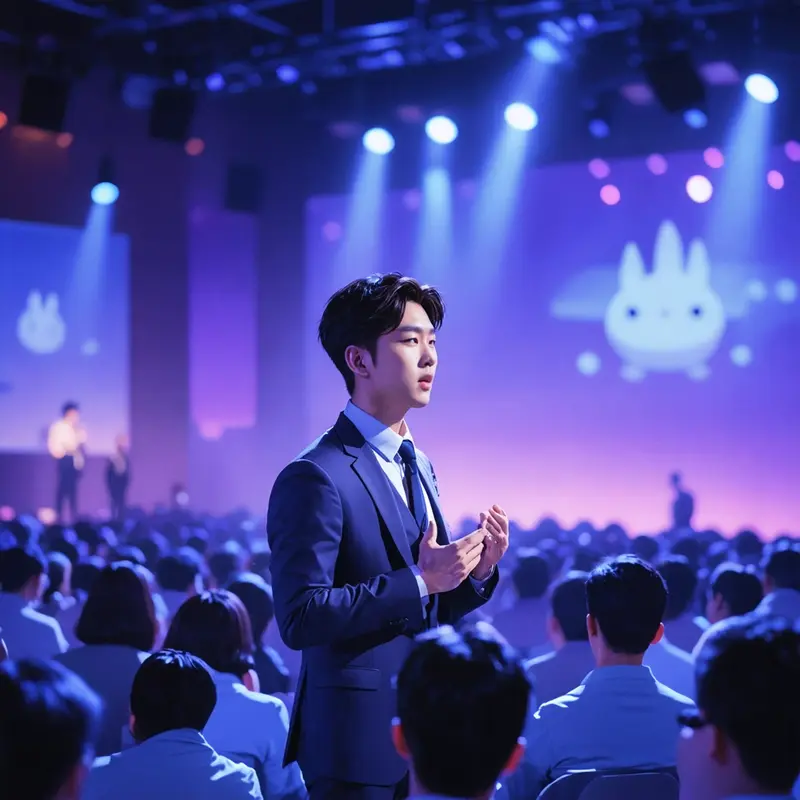
Jason Kwon: Shaping OpenAI's Future
Ever wondered who shapes the AI strategy at one of the most influential companies? Let's dive into the mind of Jason Kwon, a strategist who's redefining AI's future at OpenAI. When Kwon first joined OpenAI, he was stepping into uncharted territory, yet he brought with him a wealth of experience from his legal and tech background. His journey is a testament to the power of interdisciplinary expertise in steering cutting-edge technologies. [Revolutionizing Development with Goose AI Agent]
Introduction to Jason Kwon's Role at OpenAI
Jason Kwon is currently the Chief Strategy Officer (CSO) at OpenAI, a pivotal role he stepped into in July 2023. As CSO, Kwon is responsible for overseeing OpenAI's strategic direction, particularly focusing on investments and steering the company's competitive edge in a rapidly evolving AI landscape. His influence extends across the company's core strategies, making him a key player in shaping OpenAI's future.
Professional Journey and Background
Legal Expertise and Transition to Tech
Before entering the realm of AI, Kwon built a formidable career in law. He served as General Counsel for Y Combinator, where he focused on the YC Continuity Fund, and as Assistant General Counsel for Khosla Ventures. His legal acumen was honed further as an Associate at the global law firm Goodwin. This strong legal foundation provided him with unique insights into the regulatory and ethical aspects of AI.
Role at OpenAI: From General Counsel to CSO
Kwon joined OpenAI in 2021 as General Counsel, leveraging his legal expertise to navigate complex regulatory environments. His transition to Chief Strategy Officer marked a shift towards a more strategic role, where he now focuses on long-term planning and investments. This move underscores the importance of a multidisciplinary approach in the tech industry, where legal, strategic, and technical insights are crucial. [OpenAI's New Agents SDK]
Strategic Vision for AI Governance and Control
Human Control as a Core Principle
At the heart of Kwon's strategic vision is the principle of human control over AI. He argues that as AI systems advance, they must remain controllable to ensure safety and ethical use. Kwon's belief that "human control is at the heart of AI safety" is a guiding principle in OpenAI's development strategies. [Understanding and Managing OpenAI ChatGPT Outages]
Global Approach to AI Governance
Kwon advocates for a global approach to AI governance, emphasizing that AI challenges and opportunities are not confined to national borders. He suggests that international cooperation through institutions can create robust governance frameworks, ensuring AI benefits are maximized while risks are mitigated. [Future Agent Systems and the Model Context Protocol]
Economic and Social Impacts of AI
AI's Role in Economic Growth
Jason Kwon is optimistic about AI's potential to drive economic growth. He highlights studies showing that AI tools can significantly enhance productivity and task completion quality in the private sector. This potential positions AI as a catalyst for economic transformation akin to the Industrial Revolution.
AI in Education and Government Services
Beyond its economic implications, Kwon sees AI as a tool for social good. He envisions AI improving education and government services, making them more efficient and accessible. AI's ability to reach millions of students and teachers globally exemplifies its transformative power in public sectors.
Public Engagements and Global Influence
Kwon's influence is not limited to strategy and governance. He actively represents OpenAI at global forums, such as the ET Now Global Business Summit 2024 in India and an AI forum in Seoul. These engagements highlight his role in promoting OpenAI's mission and fostering international dialogue on AI's future.
In conclusion, Jason Kwon's role at OpenAI is multifaceted, combining legal expertise, strategic vision, and public engagement to shape the company's trajectory. His focus on human control, global governance, and AI's societal benefits positions him as a leading figure in the ongoing dialogue about AI's role in our world.